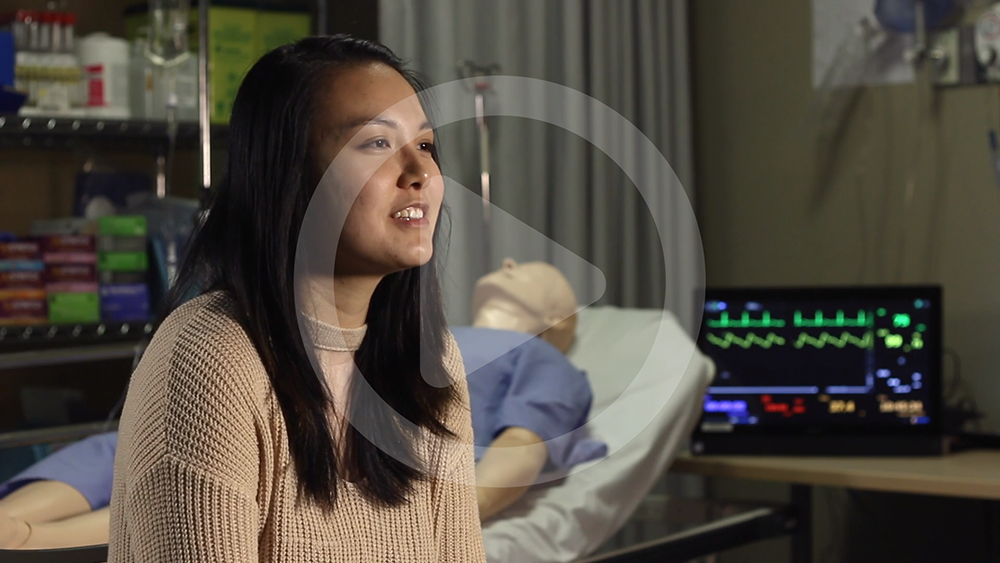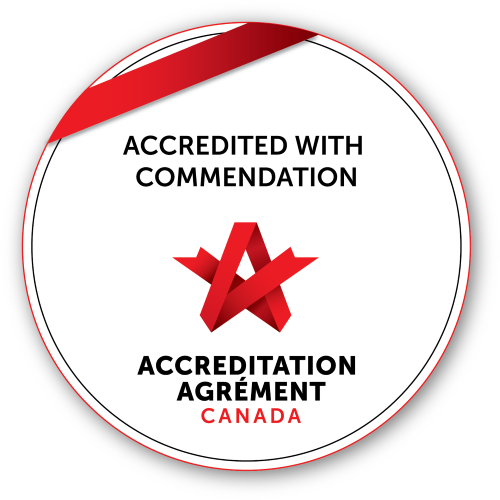Ultrasound Program

Program at a glance:
Credential Earned: Advanced Diploma
Program Length: 2 years (Full-time)
Program Delivery: Hybrid
Start Date: September 2026
Application Deadline: February 1, 2026
Program Code: MICH US222
About the Program
The Ultrasound program at Michener is a post graduate accredited program and offers a combination of didactic, simulated, and clinical components. Clinical sites are located in Ontario and throughout Canada.
The primary focus of the program is to provide entry-to-practice competence in ultrasound knowledge, skills and judgement following the Sonography Canada National Competency Profile, such that the graduate provide safe, ethical and compassionate care to each patient.
During the clinical year, students attempt the Canadian Clinical Skills Assessment (CCSA), as part of the national credentialing process by Sonography Canada for Generalist sonographers. Students are required to pass the CCSAs in order to successfully complete the ultrasound program. Graduates are eligible to challenge the written Core and Generalist exams by Sonography Canada.
Upon successful completion of the credentialing exams, the students can apply for registration with the College of Medical Radiation and Imaging Technologists of Ontario (CMRITO) allowing them to practice within the province of Ontario. Graduates are also able to work in all provinces across Canada with the Generalist Credential from Sonography Canada, provided they meet the provincial requirements.
Michener Ultrasound graduates additionally are eligible to attempt the American Registry of Diagnostic Medical Sonographer (ARDMS) certification exams (SPI/abdominal /superficial structures and obstetrics and gynecology). Successful certification from ARDMS allows graduates to work in the USA (please refer to individual state requirements).
The Ultrasound program is accredited by Accreditation Canada . Accreditation is a quality improvement process that ensures educational programs meet national standards and that students acquire the knowledge, skills, and competencies for safe and effective care at entry to practice.
Michener also offers a Bridging program for internationally educated Ultrasound professionals. For more information, please visit the Bridging Ultrasound Scanning Evaluation webpage.
“The faculty were very supportive and flexible in response to the changing conditions of the COVID-19 pandemic to ensure that we could be successful.”
Take an Ultrasound Virtual Tour
Apply now on ontariocolleges.ca
Admission Requirements
About the Profession
Diagnostic medical sonography (ultrasound) is an important medical diagnostic imaging technology and is an integral part of the diagnostic process in all health care institutions in Canada.
Ultrasound uses high-frequency sound waves to display real-time images of the soft tissue structures in the human body such as the abdomen, pelvis (male and female), breast, thyroid, musculature and vessels. It also plays a large role in assessing fetal development, well-being and fetal anatomy and can also be used to assess the viability of different types of organ transplants by assessing the vascular flow.
Sonographers use ultrasound technology to assess anatomical structures and blood flow. An ultrasound exam is dynamic, and strongly relies on the accuracy and skills of the sonographer. They collaborate with Radiologists to provide an overall impression of their assessment to that serves as a key component to the radiologist’s diagnosis and follow-up recommendations for patient management.
Many sonographers work in interdisciplinary teams, consisting of other medical imaging colleagues, radiologists, nurses and referring physicians. Career opportunities may be in hospitals, independent health facilities (clinics), research, management, vendor applications or sales, or in education.
What Will I Study?
The learning outcomes and objectives of the Ultrasound curriculum are directly related to the National Competency Profiles (NCP) Version 6.1 by Sonography Canada for the Generalist Profile.
Acquisition of academic knowledge, scanning skills, patient care and professionalism skills are necessary for an entry level Generalist Sonographer as defined by Sonography Canada National Competency Profile (Abdomen, Superficial Structures, Vascular for generalist, Gynecology and Obstetrics) including:
- Development of patient care skills in a simulated and clinical environment
- Sonographic knowledge of cross sectional, relational, normal and pathological processes of the abdomen, superficial structures, vessels, musculoskeletal, obstetrics and gynecology related to the adult human
- Development and Evaluation of scanning skills in a simulated lab environment utilizing peer to peer scanning and low and high-fidelity phantoms for more sensitive exams such as breast, transvaginal and obstetrics ultrasound.
- Clinical placement at a hospital and or clinic in Canada using the Sonography Canada Clinical Skills Assessment (CCSA) tool as a graduating criterion
- Development of skills for effective communication and collaboration to enhance Interprofessional Collaboration in Health Care
- Development of critical thinking skills essential for working in a health care environment
For detailed course descriptions, please visit the Ultrasound Curriculum page.
Clinical Education
Length: 30 weeks
Start: September
End: April
You will be assigned to clinical placement site(s) through Michener’s Office for Clinical Education. This process begins with an information session in the first year winter semester of your program.
As clinical education is a major component of all Michener programs, our affiliated clinical sites are integral to your education. They include teaching and community hospitals and private clinics in Ontario and other provinces. Working closely under the supervision of Canadian credentialed Generalist Sonographers, you will have the opportunity to integrate academic knowledge and scanning skills into practice during the clinical phase of your program. Clinical placements give you hands-on experience in work environments and the opportunity to network with potential employers.
For more information about Clinical Education, please see Michener’s Clinical Education Model page.
Additional Resources
- Canadian National Society: Sonography Canada
- Canadian Provincial Society: Ontario Association of Medical Radiation Sciences (OAMRS)
- Ontario Regulatory College: College of Medical Radiation and Imaging Technologists of Ontario (CMRITO)
Certification Exams:
- Canadian Practice: Sonography Canada
- American Practice: The American Registry for Diagnostic Medical Sonography (ARDMS)
Textbooks
Scholarship & Bursaries
Tuition
